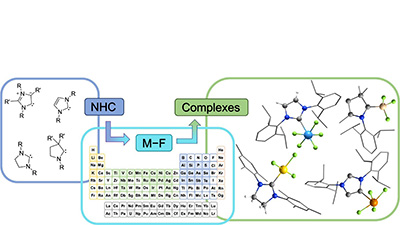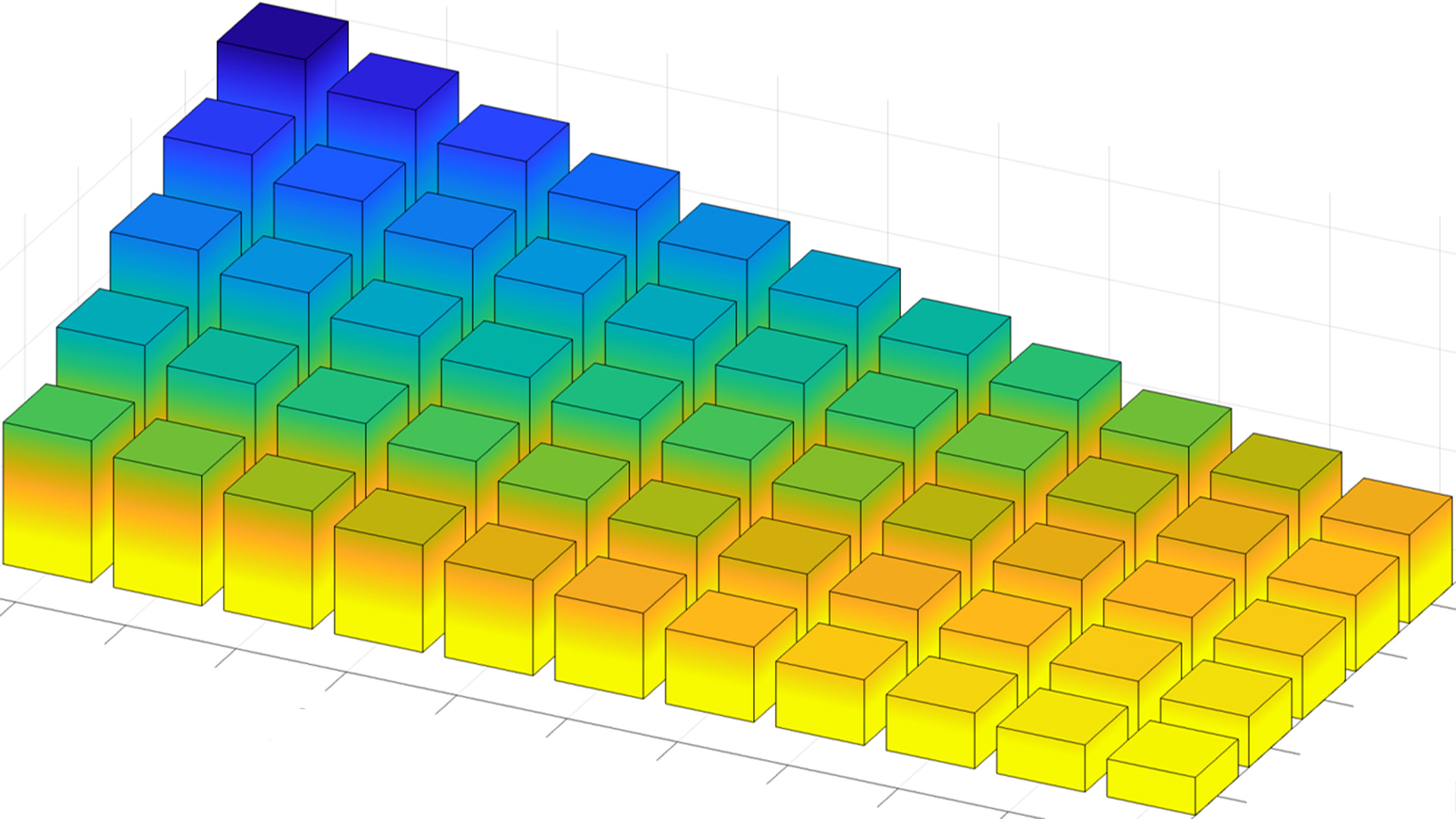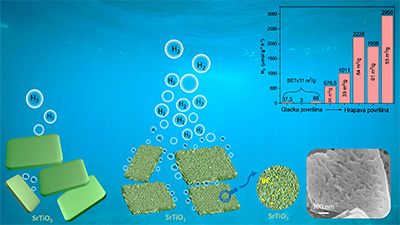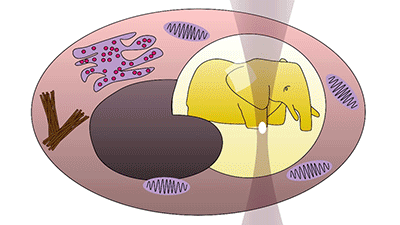Dr. Evelin Gruden and Assoc. Prof. Gašper Tavčar from the Department of Inorganic Chemistry and Technology have published a review article in the prestigious journal Coordination Chemistry Reviews . In the article, Gruden and Tavčar provide an overview of the chemistry of NHC-stabilized fluoride compounds that have been developed over the past 30 years, from the discovery of NHC carbenes to the present day. Traditionally, the chemistry of metal and non-metal fluorides has developed separately and much more slowly than other halides due to the poor solubility of fluorides and the demanding conditions for handling them. With the development of new synthesis techniques, characterization methods, and the discovery of the activity of these compounds, fluoride chemistry is becoming an increasingly important field of research. The article covers an overview of various synthesis methods for the preparation of compounds with NHC-M-F fragments, their structural features and reactivity, providing a unified reference framework for designing new NHC-stabilized fluoride compounds. |
Shih-Kai Chou, Jernej Hribar, Vid Hanžel, Mihael Mohorčič and Carolina Fortuna from the Department of Communication Systems of the Jožef Stefan Institute published a paper entitled The energy cost of artificial intelligence lifecycle in communication networks in the prestigious IEEE Journal on Selected Areas in Communications. In the paper, they analyzed the complexity of data collection and manipulation in individual components of an information-communication system and derived overall and per‑bit energy consumption. They proposed a new metric, the energy cost of AI lifecycle (eCAL), which allows for the quantification of the total energy consumption from development to deployment and utilization of machine learning models providing artificial intelligence in communication networks. The authors are the first to combine the previously separate monitoring of energy consumption in communication, computing infrastructure and the development and use of machine learning models, which forms the baseline for sustainable introduction of intelligent functionalities into smart infrastructure systems. |
The research group of the Advanced Materials Department at the Jožef Stefan Institute, in collaboration with researchers from the National Institute of Chemistry and National Taiwan University, has published a new article in the Chemical Engineering Journal entitled: Steering the Bi₄Ti₃O₁₂-to-SrTiO₃ hydrothermal transformation for controlling the functionality of two-dimensional (2D) SrTiO₃ nanoplatelets for photocatalytic H₂ evolution. The work provides an in-depth understanding of how 2D Bi₄Ti₃O₁₂ nanoplatelets can be transformed, via low-temperature hydrothermal processing, into 2D SrTiO₃ nanostructures with tailored surface roughness and surface-trapped monoatomic bismuth species. These features significantly enhance photocatalytic hydrogen evolution, achieving more than a 50-fold increase in efficiency compared to their smooth-surfaced counterparts. The study not only demonstrates how to engineer the functional properties of SrTiO₃ nanoplatelets, but also opens new pathways for designing other 2D perovskite nanostructures derived from Aurivillius phases through low-temperature topochemical transformations. This work represents a contribution to the HetCat project under the M-era.NET initiative. |
Researchers Dr. Maruša Mur, Aljaž Kavčič, Dr. Uroš Jagodič, Dr. Rok Podlipec, and Assoc. Prof. Dr. Matjaž Humar from the Department of Condensed Matter Physics at the Jožef Stefan Institute have succeeded in 3D printing microscopic structures directly inside living human cells using two advanced techniques. First, they injected a drop of biocompatible light-sensitive material into the cell. Then, using a highly focused laser beam, they selectively illuminated the printing material and polymerized it. By moving the laser beam in three dimensions, it is possible to "draw" complex structures of any shape with sub-micrometer resolution. Using this method, the team printed various structures, from geometric patterns to microlasers and even small elephants, all inside living human cells. By transforming living cells into miniature environments for 3D printing, this work pushes the boundaries of what is possible at the intersection of biology, physics, and engineering, offering a powerful new tool for exploring the workings of life from the inside out. The research was published in the prestigious journal Advanced Materials. |




